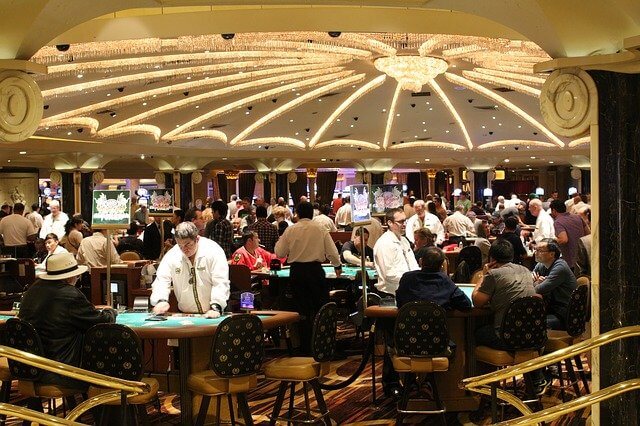The Societal Impact of Casino Games Across the Globe

Gambling games have long been a fascinating entertainment option, drawing millions of players from varied cultures around the globe. From the lively casinos of the Strip to the bustling gambling halls of the Cotai Strip, these games serve as a link that brings together people across a variety of backgrounds. The allure of luck, strategy, and gambling entices not only those looking to gamble for profit but also those seeking a feeling of belonging.
The significance of casino games extends significantly past the gaming floor. They often reflect the values and traditions of the communities in which they prosper. U888 Games such as Texas hold 'em, pontoon, and the wheel game have integrated into the mosaic of mainstream culture, influencing everything from cinema to style. As we explore this fascinating intersection of gambling and society, we can comprehend better how casino games shape and are influenced by the surrounding world.
Historical Progression of Gambling Activities
The beginnings of gaming activities can be followed back to old civilizations, where betting in various forms was extensively engaged in. In China, around 2300 B.C., a form of gambling known as Keno was common, while in old Rome, soldiers would frequently bet on the results of their matches. The concept of using luck for amusement and profit developed over the years, leading to the creation of more formal games. By the late Middle Ages, gambling houses started to appear in European nations, notably in the Italian peninsula, which introduced early incarnations of popular games still practiced today.
As gambling increased popularity in Europe, the 17th and 18th centuries saw the appearance of gambling establishments as dedicated establishments for betting. The earliest official casino, the Ridotto, was founded in the Venetian city in 1638, offering games like Baccarat and Faro. This period marked a significant turning point, as gaming venues began to welcome not just the elite but also the expanding middle-tier society. The refinement of games increased, leading to the creation of new regulations and versions that enhanced the gaming experience.
In the 19th century, the era of industrialization and shifts in social standards also altered the landscape of gambling games. The introduction of roulette and modern one-armed bandits drew a more diverse crowd, and casinos became seen as acceptable recreation. This era witnessed the worldwide proliferation of gaming, as gambling houses extended from Europe to the New World, culminating in the establishment of the iconic Las Vegas Boulevard in the 1900s. The evolution of gaming games has continued into the current era, integrating technology and digital platforms, rendering them available to a global population.
## Cultural Importance within Different Cultures
Casino activities have deep-rooted social significance across numerous societies around the world. In Las Vegas, the very essence of the city is woven around gambling establishments, where gaming is not just a recreational activity but a central aspect of entertainment and community life. The bright lights and vibrant atmosphere attract a vast audience, showcasing how games of chance can impact local economical structures and cultural identities. This environment transforms the notion of recreation into an enriching encounter that influences style, music, and even film.
On the other hand, some cultures view gambling with greater care, seeing it through the lens of ethical beliefs and heritage. A case in point, in various Oriental communities, games like Mahjongg and Pai Gow Gambling are steeped in history and possess significant social implications. These games are often played during gatherings and festivities, fostering community bonds and solidifying familial ties. The act of engaging in these games goes above mere leisure, reflecting principles such as honoring elders and the value of shared enjoyment.
Meanwhile, in Western countries such as the principality of Monaco and Rome, casino games serve as symbols of luxury and elegance. The refined atmosphere of these locations attracts both travelers and locals, upholding a sense of distinction and elitism. The art of poker and the strategic elements of games like banker’s game are celebrated, influencing social dynamics and establishing an attraction that fascinates a diverse audience. This highlights how games of chance can simultaneously mirror and mold cultural attitudes towards risk, reward, and relationship building.
Financial Influence and Travel Industry
Casino games play a significant role in the financial context of many regions, particularly those that depend significantly on visitor traffic. The revenue produced from gambling establishments fuels local financial systems, creating employment opportunities not only within the casinos but also but also in connected industries such as hospitality, dining, and entertainment. This surge of tourists, drawn by the attraction of games and the overall gaming environment, stimulates expenditure across multiple businesses, contributing to the economic health of the region.
The existence of casinos often leads to the development of infrastructure, including hotels, transportation systems, and leisure amenities. These developments are essential in improving the overall visitor satisfaction, making locations more attractive to tourists. Additionally, many casinos contribute in local communities through sponsorship of events and philanthropic activities, further embedding themselves into the community structure of the region. Such contribution not only supports economic growth but also cultivates a positive image of the gambling sector.
In addition, the global popularity of casino games drives tourism competition, with regions vying to attract gamblers from across the globe. Iconic destinations like Las Vegas and Macau have become identifiable with casino culture, drawing millions each year. This competitive edge encourages creativity and variety within the gambling sector, influencing developments in leisure and hospitality that resonate beyond their limits. The ripple effects of this visitor influx extend far, impacting local financial health and cultural exchanges on a global scale.
